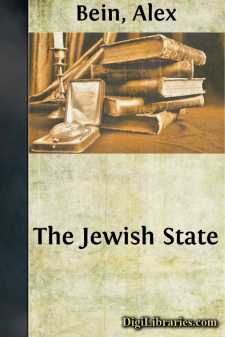Categories
- Antiques & Collectibles 13
- Architecture 36
- Art 48
- Bibles 22
- Biography & Autobiography 816
- Body, Mind & Spirit 145
- Business & Economics 28
- Children's Books 17
- Children's Fiction 14
- Computers 4
- Cooking 94
- Crafts & Hobbies 4
- Drama 346
- Education 58
- Family & Relationships 59
- Fiction 11834
- Foreign Language Study 3
- Games 19
- Gardening 17
- Health & Fitness 34
- History 1378
- House & Home 1
- Humor 147
- Juvenile Fiction 1873
- Juvenile Nonfiction 202
- Language Arts & Disciplines 89
- Law 16
- Literary Collections 686
- Literary Criticism 179
- Mathematics 13
- Medical 41
- Music 40
- Nature 179
- Non-Classifiable 1768
- Performing Arts 7
- Periodicals 1453
- Philosophy 66
- Photography 2
- Poetry 897
- Political Science 203
- Psychology 45
- Reference 154
- Religion 516
- Science 126
- Self-Help 85
- Social Science 82
- Sports & Recreation 34
- Study Aids 3
- Technology & Engineering 59
- Transportation 23
- Travel 463
- True Crime 29
Our website is made possible by displaying online advertisements to our visitors.
Please consider supporting us by disabling your ad blocker.
The Jewish State
by: Alex Bein
Categories:
Description:
Excerpt
Introduction
Theodore Herzl was the first Jew who projected the Jewish question as an international problem. "The Jewish State," written fifty years ago, was the first public expression, in a modern language, by a modern Jew, of a dynamic conception of how the solution of the problem could be accelerated and the ancient Jewish hope, slumbering in Jewish memory for two thousand years, could be fulfilled.
In 1882, Leo Pinsker, a Jewish physician of Odessa, disturbed by the pogroms of 1881, made a keen analysis of the position of the Jews, declared that anti-Semitism was a psychosis and incurable, that the cause of it was the abnormal condition of Jewish life, and that the only remedy for it was the removal of the cause through self-help and self-liberation. The Jewish people must become an independent nation, settled on the soil of their own land and leading the life of a normal people. Moses Hess in his "Rome and Jerusalem" classified the Jewish question as one of the nationalist struggles inspired by the French Revolution. Perez Smolenskin and E. Ben-Yehuda urged the revival of Hebrew and the resettlement of Palestine as the foundation for the rebirth of the Jewish people. Herzl was unaware of the existence of these works. His eyes were not directed to the problem in the same manner. When he wrote "The Jewish State" he was a journalist, living in Paris, sending his letters to the leading newspaper of Vienna, the Neue Freie Presse, and writing on a great variety of subjects. He was led to see Jewish life as a phenomenon in a changing world. He had adapted himself to a worldly outlook on all life. Through his efforts, the Jewish problem was raised to the higher level of an international question which, in his judgment, should be given consideration by enlightened statesmanship. He was inspired to give his pamphlet a title that arrested attention.
He wrote "The Jewish State" in a mood of restless agitation. His ideas were thrown pell-mell into the white heat of a spontaneous revelation. What was revealed dazzled and blinded him. Alex Bein, in his excellent biography, gives an intriguing description, drawn from Herzl's "Diaries," of how "The Jewish State" was born. It was the revelation of a mystic vision with flashes and overtones of prophecy. This is what Bein says:
"Then suddenly the storm breaks upon him. The clouds open. The thunder rolls. The lightning flashes about him. A thousand impressions beat upon him at the same time—a gigantic vision. He cannot think; he is unable to move; he can only write; breathless, unreflecting, unable to control himself or to exercise his critical faculties lest he dam the eruption, he dashes down his thoughts on scraps of paper—walking, standing, lying down, on the street, at the table, in the night—as if under unceasing command. So furiously did the cataract of his thoughts rush through him, that he thought he was going out of his mind. He was not working out the idea. The idea was working him out. It would have been an hallucination had it not been so informed by reason from first to last."
Not only did the Magic Title evoke a widespread interest among the intellectuals of the day, but it brought Jews out of the ghettos and made them conscious of their origin and destiny....


